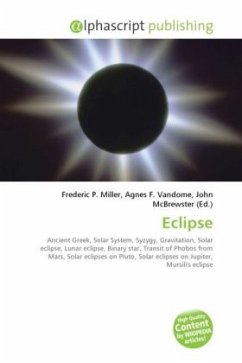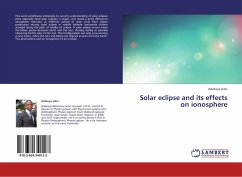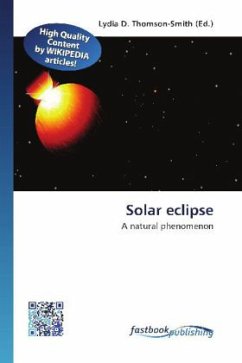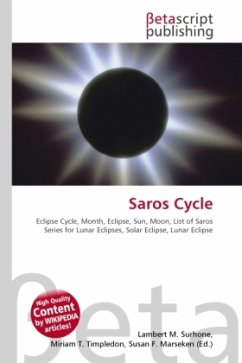High Quality Content by WIKIPEDIA articles! An eclipse is an astronomical event that occurs when one celestial object moves into the shadow of another. The term is derived from the ancient Greek noun (ékleipsis), which is derived from the verb (ekleíp ), "to cease to exist,"[1] a combination of prefix - (ek-), from preposition , (ek, ex), "out," and of verb (leíp ), "to be absent". When an eclipse occurs within a stellar system, such as the Solar System, it forms a type of syzygy the alignment of three or more celestial bodies in the same gravitational system along a straight line. The term eclipse is most often used to describe either a solar eclipse, when the Moon's shadow crosses the Earth's surface, or a lunar eclipse, when the Moon moves into the shadow of Earth. However, it can also refer to such events beyond the Earth-Moon system: for example, a planet moving into the shadow cast by one of its moons, a moon passing into the shadow cast by itshost planet, or a moon passing into the shadow of another moon. A binary star system can also produce eclipses if the plane of their orbit intersects the position of the observer.
Bitte wählen Sie Ihr Anliegen aus.
Rechnungen
Retourenschein anfordern
Bestellstatus
Storno








